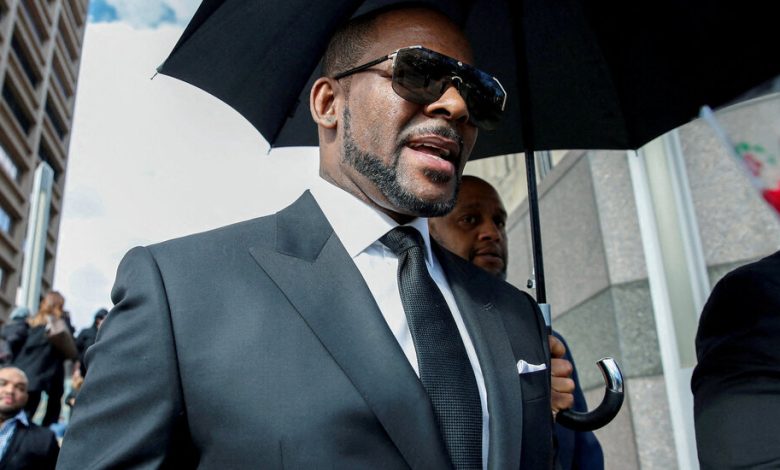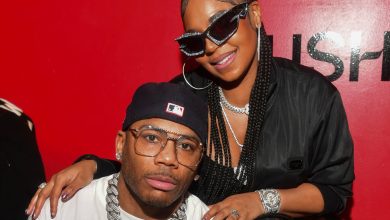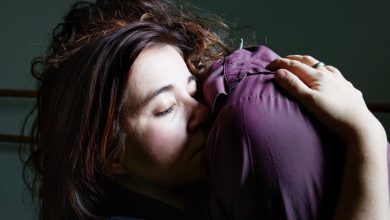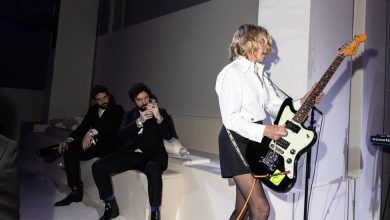R. Kelly Convicted in Sex Abuse Case Involving Videos of a Teenage Girl

CHICAGO — R. Kelly, the fallen R&B star once revered as a product of this city’s South Side, was convicted Wednesday of child sex crimes as a jury found that he had produced three videos of himself sexually abusing his 14-year-old goddaughter.
Mr. Kelly, 55, is already serving a 30-year prison sentence after a jury in Brooklyn convicted him of racketeering and sex trafficking charges last year — the first time Mr. Kelly had been held criminally responsible for sexual abuse despite accusations dating back more than three decades. The conviction in Chicago could add years to that prison sentence.
The 12-person jury in the trial here convicted Mr. Kelly of six of the 13 charges brought against him, including three counts of coercing minors into sexual activity and three of producing sex tapes involving a minor. But in something of a setback to prosecutors, he was acquitted of a charge that he had attempted to obstruct an earlier investigation into his abuse of the underage girl, and two other counts of enticing minors to have sex.
“We are particularly pleased that Robert Kelly is finally, finally being held responsible for the abuse of his 14-year-old goddaughter,” said John R. Lausch Jr., U.S. attorney for the Northern District of Illinois, after the verdict was read.
The federal trial in Chicago carried echoes of a state trial held in Illinois in 2008, in which a jury acquitted Mr. Kelly of charges of producing child sexual abuse imagery. That trial focused on the same 14-year-old girl and a videotape that prosecutors said showed Mr. Kelly sexually abusing and urinating on her. After finding him not guilty, some jurors told reporters that they had been affected by the lack of testimony from the young woman, who had denied to a grand jury that she was the person in the video.
But during this trial, which started in August at the Everett M. Dirksen U.S. Courthouse in downtown Chicago, the woman took the stand, identified herself as the young girl in the video and testified that the singer had persuaded her to lie to the grand jury. Prosecutors showed jurors clips from that video and from two others that they described as footage of Mr. Kelly sexually abusing the woman when she was underage. And they presented evidence of payments to the woman and her family over several years, arguing that the money was meant to keep them quiet about the abuse.
Three other women testified in the trial, saying that Mr. Kelly sexually abused them when they were underage. A fifth accuser who had been expected to testify did not appear.
Mr. Kelly also did not testify at the trial, and left his defense in the hands of his lawyer Jennifer Bonjean, who argued that her client was being prosecuted because of a rush to judgment precipitated by the #MeToo movement. She described him as a “victim of extortion and financial exploitation.”
But over the weeks of the trial, prosecutors portrayed Mr. Kelly as a serial sexual predator who mobilized an array of associates to help hide his crimes. A key witness for the prosecution, Charles Freeman, testified that Mr. Kelly called him in 2001, asking for help recovering some “stolen tapes.” Mr. Freeman said that over a period of several years, he had received hundreds of thousands of dollars from Mr. Kelly and his business.
“Robert Kelly abused many girls over many years,” Elizabeth Pozolo, one of the prosecutors, told the jury in closing arguments. “He committed horrible crimes against children, and he didn’t do it alone.”
Mr. Kelly’s accomplices, the prosecution argued, included two of his former employees, both of whom were tried alongside the singer, but were acquitted of all charges. Derrel McDavid, Mr. Kelly’s former business manager, was acquitted of charges that he arranged payments to people attempting to recover the missing videos.
Milton Brown, another former employee, was accused of conspiring to recover child sexual abuse imagery as part of an effort to protect Mr. Kelly, but the jury acquitted Mr. Brown of that charge as well.
Lawyers for both of the men had argued that they were merely doing their jobs, as directed by Mr. Kelly, and that they had no reason to believe that the tapes they were asked to recover involved an underage girl. (And Ms. Bonjean asserted that the tapes depicted only consenting adults.)
But when Mr. McDavid took the stand to testify in his own defense, he broke with his former boss, while maintaining that he was ignorant of any sexual abuse of minors.
“The last three weeks I’ve learned a lot of things that I had no idea about in 2008,” he testified. “As I stand here today, I’m embarrassed, sad.”
Mr. Kelly’s defense team sought to cast doubt on the credibility of the women who testified against him, portraying them as motivated by money and self-protection. Ms. Bonjean highlighted the fact that the woman at the center of the 2008 trial now has an immunity deal with prosecutors that protects her from perjury charges related to lying to the grand jury at the time.
Ms. Bonjean — who has represented other high-profile men accused of sexual abuse, including Bill Cosby — drilled down on inconsistencies in the accusers’ accounts and argued that if the jurors found a witness to be untrustworthy on details, that was sufficient enough doubt to warrant an acquittal.
“When you find a cockroach in the soup, you don’t just pull out the cockroach, you throw out the whole soup,” Ms. Bonjean said in closing arguments. “There are too many cockroaches in the testimony of many of these witnesses.”
For example, she pointed out that one of the accusers, who testified that she had been 16 when she first had sexual contact with Mr. Kelly, had said in an earlier lawsuit that she had actually been 17, the age of consent in Illinois. Mr. Kelly was acquitted on that charge.
After the verdict was read, Ms. Bonjean told reporters that they planned to appeal.
“Mr. Kelly is used to bad news,” she said.
Each count of producing child sexual abuse imagery carries a minimum sentence of 10 years. Prosecutors have indicated they will ask for Mr. Kelly’s sentence to be added on top of the Brooklyn sentence.
Next, Mr. Kelly will face state charges in Illinois and Minnesota, unless prosecutors drop the cases in the wake of his second federal conviction.
The scenes at the courthouse over the trial demonstrated how much has changed for the former R&B star over the past 14 years. In 2008, Mr. Kelly’s supporters arranged for children to be bused to the courthouse wearing “Free R. Kelly” T-shirts. When he was acquitted in that case, he walked out of the courthouse to boisterous applause.
During this trial, support was muted. About a dozen fans showed up to the courthouse each day, and during deliberations, a man set up a speaker that blasted “Step in the Name of Love” and other hits by Mr. Kelly.
A key development for prosecutors who secured the conviction was the decision by the woman at the center of the 2008 trial to testify in this case. She decided to cooperate with investigators in 2019 — months after the Lifetime documentary series “Surviving R. Kelly” aired sexual abuse allegations against the singer.
The defense challenged her repeatedly on why it took her so long to cooperate, to which she responded, “I no longer wanted to carry his lies.”



